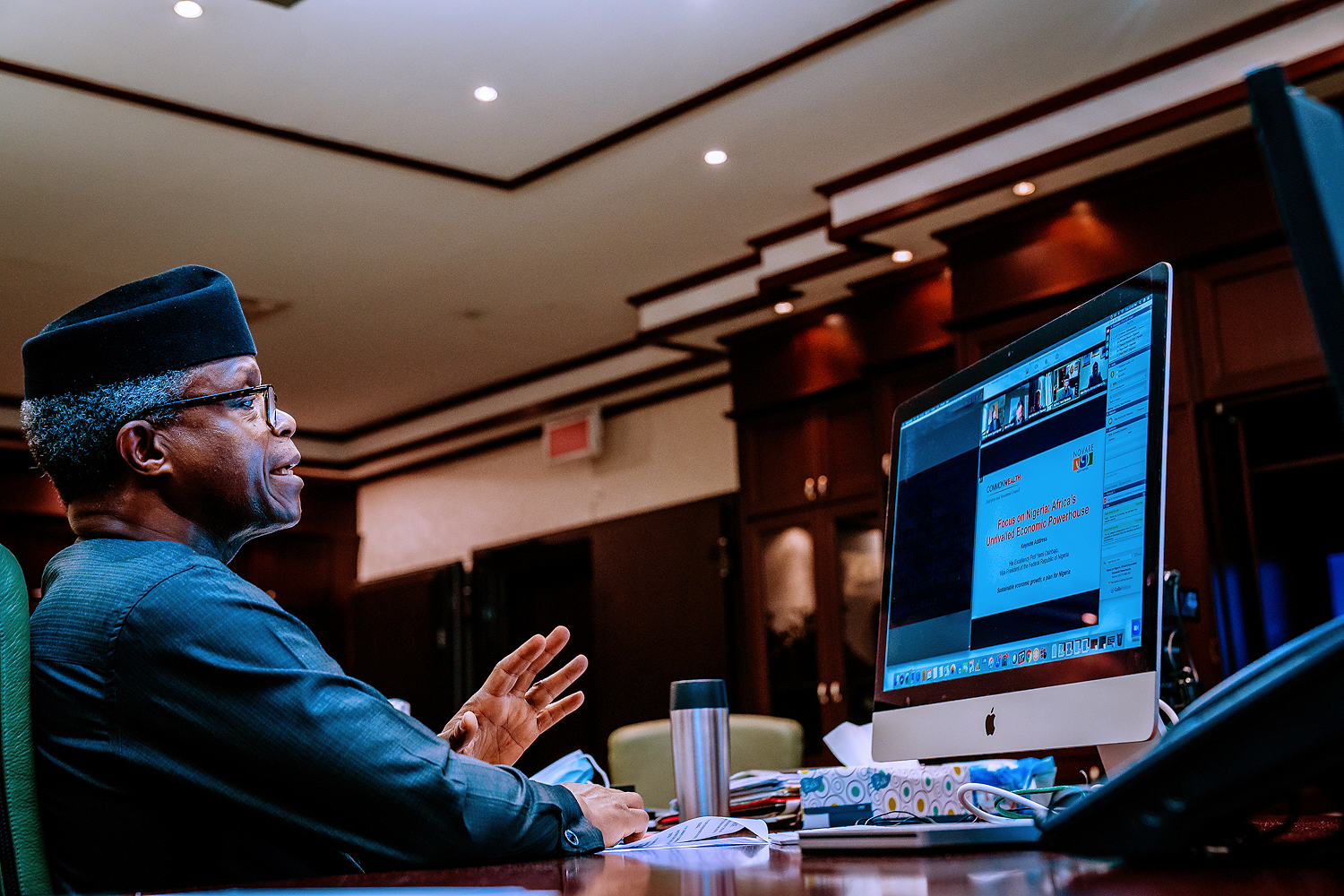As part of efforts to stabilise the finances of the 36 states, the Federal Government said on Thursday that the
suspension of deductions from their monthly allocations for monies owed would remain until April 2020.
The government had provided ‘Budget Support facility’ to the states from the Federal Government to put them on an even keel.
Vice-President Yemi Osinbajo gave the assurance at the fourth virtual meeting of the National Economic Council (NEC) presided over by him at the Presidential Villa, where the Council received monthly financial updates.
The deductions were suspended since April this year as a supportive measure to help the states.
The governors joined the virtual NEC from their respective states.
NEC also adopted a range of measures to beat back the number of Nigerian children who are out of school.
In a bid to prevent a complacency in confronting the COVID-19 pandemic in the country, the meeting urged Nigerians to remain alert and maintain the precautions necessary to fight the infectious disease.
The Council resolved that as long as people are still getting infected, Nigerians should maintain the use of non-pharmaceutical measures and precautions, so that the number of COVID-19 cases in the country are not heightened.
The resolution followed a presentation by the Director-General of NCDC, Dr. Chikwe Ihekweazu, who gave an update on the pandemic as at September 15, 2020.
Speaking to State House correspondents after the meeting, Kaduna State Governor Nasir El-Rufai, said all members of the NEC adopted the strategies aimed at strengthening the education sector in the country and make education available to all Nigerian children.
According to him, among the measures adopted were the call for the release of the Universal Basic Education (UBE) intervention funds to all the states equally, mainstreaming the Al-Majiri education system as well as popularising open schooling, which is designed to combat the out-of-school-children menace.
“Some of the measures to arrest the potential growth in the number of out of school children, arising from the situation we had before the pandemic and during the pandemic are as follows:
“Disbursement of the federal government of Nigeria, UBE intervention funds to states on equality basis to enable them to implement tangible state based priority projects, including the building of schools or additional classrooms, renovations, rehabilitations, procurement of furniture and equipment etc with focus on enrolling more pupils or having more flexibility to do shifts.
“The Almajiri Integrated Quaranic Teaching School Programmes to mainstream the Almajiri boys into basic education and eradicate the out-of-school children syndrome in northern Nigeria.
“Open schooling, which is principally aimed at reducing the number of out-of-school children in the country, amongst others.
“I am very pleased to announce that the federal government has put in place some financial incentives to assist the states in implementing the education COVID-19 plan.
“Selected states are to benefit from the COVID-19 GPE global partnership for education funding; those that are above the national average from at least two of three criteria.
“The states that have qualified are Abia, Anambra, Akwa Ibom, Benue, Ebonyi, Jigawa, Kaduna, Katsina, Kebbi, Kano, Nassarawa, Niger, Plateau, Sokoto and Zamfara states. These are the states that made two of the three criteria for GPE funding. This is the grant from the World Bank and other donors”, he said.
Other highlights of the meeting included a report by the Minister of State for Budget and National Planning to Council that as at 15th September 2020, Excess crude account (ECA) balance was $72, 408, 743.16, Stabilization fund account balance N43, 603, 048,431.80 and Natural Resources Development Fund balance N138, 770, 528, 353.88.























Leave a comment